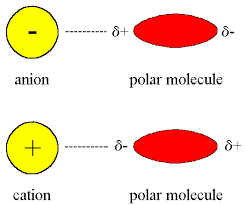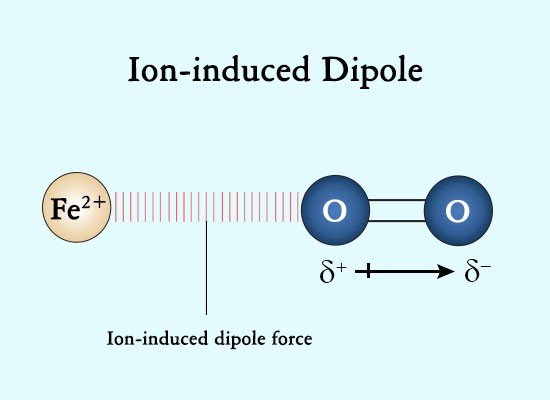So basically anyone can steal an election, cause a nanoparticle pandemic, start a war or even put everyone under mind control using vaccines and the justice sytem will just ignore the truth, cover up the facts and turn a blind eye.
G I U S T I F I C A Z I O N I S T I C H E
Borrowed from Late Latin iustificationem, justificationem < iustificatio, from iustifico, from Latin iustus.
Noun
giustificazione f (plural giustificazioni)
justification, explanation
proof
Together as one
just us.
US ultrasound
justifiable
/ˈdʒʌstɪˌfʌɪəb(ə)l/
adjective
able to be shown to be right or reasonable; defensible.
deafening
/ˈdɛf(ə)nɪŋ/
(of a noise) so loud as to make it impossible to hear anything else.
"the music reached a deafening crescendo"
A CRESCENDO
verb: crescendo; 3rd person present: crescendoes; past tense: crescendoed; past participle: crescendoed; gerund or present participle: crescendoing
increase in loudness or intensity.
"the reluctant cheers began to crescendo"
late 18th century: Italian, present participle of crescere ‘to increase’, from Latin crescere ‘grow’.
From Middle English encresing, equivalent to increase + -ing.
Noun
increasing (plural increasings)
(knitting) An increase.
A N E N C R E S I N G
resing (third-person singular simple present resings, present participle resinging, simple past resang, past participle resung)
To sing again.
reasonable
/ˈriːz(ə)nəb(ə)l/
adjective
1.
having sound judgement; fair and sensible.
justified; past participle: justified
1.
show or prove to be right or reasonable.
Noun. 1. sound judgement - the capacity to assess situations or circumstances shrewdly and to draw sound conclusions. sound judgment, perspicacity, judgement, judgment. trait - a distinguishing feature of your personal nature.
From Middle English juste, from Old French juste, from Latin iūstus (“just, lawful, rightful, true, due, proper, moderate”), from Proto-Italic *jowestos, related to Latin iūs (“law, right”); ultimately from Proto-Indo-European *h₂yew-. Compare Scots juist (“just”), Saterland Frisian juust (“just”), West Frisian just (“just”), Dutch juist (“just”), German Low German jüst (“jüst”), German just (“just”), Danish just (“just”), Swedish just (“just”). Doublet of giusto.
Alternative forms
jes, jes', jest, jist, jus'
Adjective
just (comparative juster or more just, superlative justest or most just)
Factually right, correct; factual.
It is a just assessment of the facts.
Rationally right, correct.
Morally right; upright, righteous, equitable; fair.
It looks like a just solution at first glance.
Proper, adequate.
Synonyms
right, correct
righteous, equitable
proper, adequate
Antonyms
unjust
Derived terms
justly
justness
sleep of the just
Related terms
From Middle English justice, from Old French justise, justice (Modern French justice), from Latin iūstitia (“righteousness, equity”), from iūstus (“just”), from iūs (“right”), from Proto-Italic *jowos, perhaps literally "sacred formula", a word peculiar to Latin (not general Italic) that originated in the religious cults, from Proto-Indo-European *h₂yew-. Doublet of Justitia.
Displaced native Middle English rightwished, rightwisnes (“justice”) (from Old English rihtwīsnes (“justice, righteousness”), compare Old English ġerihte (“justice”)).
righteousness (countable and uncountable, plural righteousnesses)
(uncountable) The quality or state of being righteous.
(uncountable, theology) Holiness; conformity of life to the divine law.
Synonyms: rectitude, uprightness, holiness, godliness, equity, justice, rightfulness, integrity, honesty, faithfulness
The act or conduct of one who is righteous.
(theology) The state of being right with God;
justification; the work of Christ, which is the ground justification.
uprighteousness (uncountable)
Quality of being uprighteous.
uprighteous (comparative more uprighteous, superlative most uprighteous)
Righteous.
Related terms
upright
upright (comparative more upright, superlative most upright)
Vertical; erect.
resurrect (third-person singular simple present resurrects, present participle resurrecting, simple past and past participle resurrected)
(transitive) To raise from the dead, to bring life back to.
Synonym: revive
(transitive) To restore to a working state.
(transitive) To bring back to view or attention; reinstate.
reinstate (third-person singular simple present reinstates, present participle reinstating, simple past and past participle reinstated)
(transitive) To restore to a former position or rank.
(transitive) To bring back into use or existence; resurrect.
reinstatement (countable and uncountable, plural reinstatements)
The act of restoring something to its previous state.
restoring
present participle of restore
toring (plural torings)
tower
tower (third-person singular simple present towers, present participle towering, simple past and past participle towered)
(intransitive) To be very tall.
The office block towered into the sky.
(intransitive) To be high or lofty; to soar.
(obsolete, transitive) To soar into.
soar (third-person singular simple present soars, present participle soaring, simple past and past participle soared)
(intransitive) To fly high with little effort, like a bird.
To mount upward on wings, or as on wings.
To remain aloft by means of a glider or other unpowered aircraft.
To rise, especially rapidly or unusually high.
The pump prices soared into new heights as the strike continued.
(figuratively) To rise in thought, spirits, or imagination; to be exalted in mood.
AN IMAGINATION
AS JUSTIFICATION
cation
/ˈkatʌɪən/
nounCHEMISTRY
noun: cation; plural noun: cations
a positively charged ion, i.e. one that would be attracted to the cathode in electrolysis
mid 19th century: from cata- ‘alongside’ or from cathode, + ion.
An ion is a charged atom or molecule. It is charged because the number of electrons do not equal the number of protons in the atom or molecule. ... When an atom is attracted to another atom because it has an unequal number of electrons and protons, the atom is called an ION.
Positively charged ions are called cations; negatively charged ions, anions.
Etymology
Borrowed from Vulgar Latin *fēdes, from Latin fidēs.
Pronunciation
IPA(key): /fɛ/
Noun
fe f (indefinite plural fe, definite singular feja, definite plural fetë)
religion
fidēs f (genitive fideī); fifth declension
faith, belief (belief without empirical evidence, direct experience, or observation)
reliance (act of relying (on) or trusting)
confidence, trust (confidence in or reliance on some person or quality)
credit (acceptance of the truth of something said or done)
loyalty, fidelity, faith (state of demonstrating undivided and constant support for someone or something)
good faith (good, honest intentions)
honesty (act, quality, or condition of being honest)
guarantee, promise (an assurance of something to be done)
help, assistance
"the output is left-justified"
adjust
/əˈdʒʌst/
verb: adjust; 3rd person present: adjusts; past tense: adjusted; past participle: adjusted; gerund or present participle: adjusting
1.
alter or move (something) slightly in order to achieve the desired fit, appearance, or result.
result (third-person singular simple present results, present participle resulting, simple past and past participle resulted) (intransitive)
To proceed, spring up or rise, as a consequence, from facts, arguments, premises, combination of circumstances, consultation, thought or endeavor.
(intransitive, followed by "in") To have as a consequence; to lead to; to bring about
This measure will result in good or in evil.
(law) To return to the proprietor (or heirs) after a reversion.
(obsolete) To leap back; to rebound.
Synonyms
(to proceed, spring, or rise, as a consequence): follow, arise
Related terms
resultant
resile
resilient
resilience
AS A CONSEQUENCE


